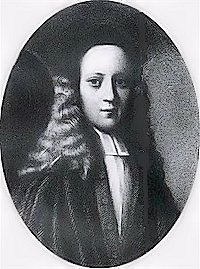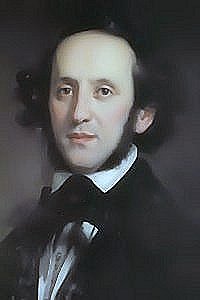Introduction

Words: Antoinette Bourignon, circa 1640 (Venez, Jésus, mon salutaire). Appeared in her Works (Amsterdam, Holland: 1686). Translated from French to English possibly by John Byrom (1691–1763). The translation was published in Hymns and Sacred Poems, by Charles & John Wesley, 1739.
Julian wrote that this hymn expressed her determination to live for Christ alone, a resolution which she came to whilst suffering from her father’s anger because she refused to marry a man whom he had chosen for her.
Music: Bartholdy, from Number 6, Book 3 of Lieder ohne Worte, Opus 38, by Felix Mendelssohn, 1837 (🔊 pdf nwc).
Alternate Tunes:
- Rimington Francis Duckworth, 1904 (🔊 pdf nwc)
- Upton Lowell Mason, The Sacred Harp or Eclectic Harmony (Cincinnati Ohio: Truman & Smith, 1835), page 95 (🔊 pdf nwc)

(1809–1847)